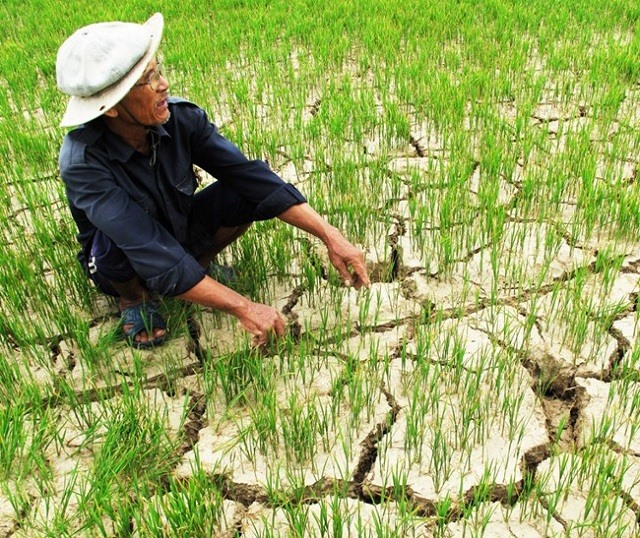 A farmer sitting in his drought-hit rice field. Farmers are the group most vulnerable to climate change. — Photo danviet.vn |
Dr. Leo Sebastian, CCAFS SEA director, spoke on the efforts to a workshop on reviewing the success of CCAFS’s programme and climate-smart village (CSV) model in Việt Nam and Southeast Asia in 2018.
“As we are now in the second phase of CCAFS, the highlight of this annual meeting was on refocusing our research for development (R4D) framework and revisiting our programme’s targets,” said Dr. Sebastian. “With the goal of addressing the challenges and opportunities in the region, CCAFS SEA envisions combining the activities of its four R4D flagships in the CSVs towards an integrated set of activities and interventions.”
The focus of the workshop was on reviewing research plans as well as development and programme goals.
“Through the presentation of our outcomes and the discussion of gaps and opportunities, CCAFS SEA will be guided toward a more effective programme implementation,” he said.
The workshop also reviewed projects on Low Emissions Development (LED), climate information services and agricultural recommendations. It covered studies on rural social security systems such as: emission reduction strategies for rice production; sustainable dairy cow raising in Indonesia; enhancing adaptability to climate change among ethnic minority women and small scale farmers through climate information services in Southeast Asia; and research on the implementation of institutional measures in response to El Nino in Việt Nam and the Philippines.
The many activities reported at the workshop included research carried out in climate-smart villages in Cambodia, Laos, the Philippines and Việt Nam.
To serve as a testing ground for climate-smart agriculture (CSA), CCAFS SEA piloted the CSV model across the region.
At present, there are several CSVs in five Southeast Asian countries. Cambodia has one, Laos has two, Myanmar has four and the Philippines has one. Việt Nam has three villages in the provinces of Yên Bái, Hà Tĩnh and Bạc Liêu.
In Southeast Asia, CSVs have generated evidence of the effectiveness of CSA technologies and practices in real-life settings through systematically developing, evaluating and promoting integrated and innovative portfolios.
The CSV model also provided the framework for establishing climate-resilient communities in the Philippines and Myanmar.
Speaking at the workshop, Dr. Nguyễn Như Cường, acting director of the Planting Department (the Ministry of Agriculture and Rural Development) said being a country that valued agriculture, adaptation to climate change was always one of the priorities of the Vietnamese Government.
“Over the past years, Việt Nam has taken strong steps in terms of policy, scientific research and international co-operation, including the Government Resolution on Mekong Delta Adaptation to Climate Change, and the restructuring of agriculture and rice production,” he said. — VNS
Categories: Drought, Infrastructure



